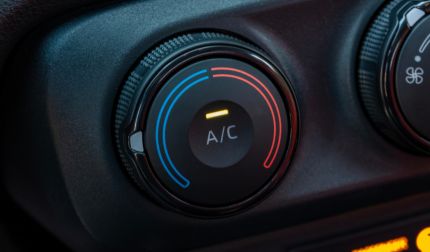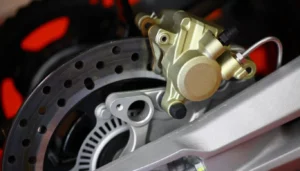Nothing can disrupt the comfort of your drive like a malfunctioning car air conditioning system, particularly in the peak of summer heat. The ease and pleasure a functioning AC system brings to your driving experience is second to none. When it ceases to work, it triggers not only discomfort but also frustration. However, a comprehensive understanding of why such failures occur can be instrumental in resolving the problem, ensuring a swift return to a cooler, more enjoyable ride.
This guide simplifies car AC issues. This guide makes car AC issues easy to understand. It provides simple solutions for common problems, enabling you to fix your AC system. This resource demystifies car AC systems, empowering you to handle minor issues swiftly and economically.
Why is My Car AC Not Working?
There are numerous reasons why your car’s AC might not be working at its peak. These could span from straightforward complications like a blown fuse or leakage in the air conditioning system to more intricate issues involving a malfunctioning compressor or evaporator. On occasion, the problem with your car’s AC could be as elementary as a shortage of refrigerant, or as complex as a blocked condenser. Gaining an understanding of these potential problems can empower you to diagnose the issue effectively.
7 Common Causes of Car AC Problems
There are numerous reasons why a car’s air conditioning (AC) system may fail to perform optimally, or even completely stop working. This can range from simple issues like low refrigerant levels to more complex problems like a failing compressor. Understanding these issues can not only help in diagnosing the problem but also in performing the necessary fixes.
1. Low Refrigerant
Refrigerant, often referred to as Freon, is the lifeblood of your car’s AC system. It removes interior heat from your car. If your car’s AC isn’t cooling as expected, one of the most common causes is low levels of refrigerant.
This usually occurs due to a leak in the AC system. Over time, various components of the AC system, such as the hoses, can develop leaks, causing the refrigerant to slowly escape. As the refrigerant level drops, the AC’s ability to cool the interior diminishes.
To fix this, the leak you must first locate and repair, which needs a professional assistant to ensure a proper fix. Once the leak is repaired, the refrigerant can be topped up to the appropriate level. It’s important to note that overfilling the AC system with refrigerant can also lead to problems, so proper filling is essential.
2. Failing AC Compressor
The compressor is a vital component of the AC system. It’s responsible for pressurizing the refrigerant and circulating it through the system. If the compressor is failing or has failed, the refrigerant won’t circulate, and the AC system won’t cool.
Compressor failure is caused by time, infrequent use, insufficient lubrication, and electrical system issues. Indicators that your compressor may be on the brink of failure can range from discernible clicking noises emanating from the engine bay when the AC is activated, to the AC failing to cool, despite the blower fans operating effectively.
Fixing a failing compressor usually involves replacing it, For which you should consult a professional. In some cases, the compressor clutch may be the problem and replacing just the clutch can resolve the issue.
3. Clogged or Damaged Condenser
The condenser’s role in your car’s AC system is to expel the heat absorbed by the refrigerant. It’s situated in front of the car’s radiator and can easily get blocked or damaged by road debris. If the condenser is blocked or damaged, it won’t be able to expel heat, causing the AC system to not cool effectively.
Addressing a blockage in your car’s AC system is often as straightforward as providing a thorough cleaning to the condenser. However, if the condenser incurs damage, the usual course of action leans towards replacement. It’s crucial to engage the expertise of a professional to perform these tasks, thereby mitigating the risk of exacerbating the issue through inadvertent damage or incorrect installation.
4. Broken Cooling Fans
The cooling fans help cool the refrigerant in the condenser. If they are broken or not working correctly, the AC system can’t cool effectively. Signs of this problem include the AC cooling when the car is moving but not when it’s stationary, or the car overheating when stationary.
Fixing this issue can involve replacing the cooling fans, repairing the fan motor, or fixing any electrical issues that are preventing the fans from working.
5. Electrical Problems
Electrical problems are another common cause of car AC problems. These can range from blown fuses and relays to problems with the AC’s control module. Electrical problems can cause the AC system to not work at all, or to work intermittently.
Diagnosing electrical problems can be complicated and should typically be done by a professional. Fixes can range from replacing blown fuses or faulty relays, to replacing or repairing the AC’s control module.
6. A Foul Smell from the AC
If there’s a foul smell when the AC is turned on, it’s often due to mold or bacteria build-up in the AC system. This usually happens when the AC system isn’t used for a long time, or if the cabin air filter is dirty or clogged.
The fix for this issue is typically to replace the cabin air filter, and to clean and disinfect the AC system.
7. Leaking Water Inside The Car
One common issue that may cause your car’s air conditioning to malfunction involves the AC drain hose. This component plays a pivotal role in eliminating condensation from the air conditioning system. However, if this drain hose becomes obstructed or disconnected, it can lead to water leakage within your vehicle while the AC is in operation.
Addressing this issue necessitates the removal of any obstructions within the drain hose. Should it be disconnected, a reconnection is required to restore functionality. Moreover, if the drain hose is damaged, a replacement may be necessary to ensure optimal operation of the car’s air conditioning system.
Frequently Asked Questions (FAQs)
Car air conditioning issues are common. A fully functioning AC system is crucial for ensuring a comfortable drive, especially in warm weather. The following FAQs willhhhh assist with troubleshooting and resolving common AC issues.
1. Why is my car A/C blowing warm air?
Multiple factors could be at play when your vehicle’s A/C system dispenses warm air. These may range from a refrigerant leak to a clogged condenser, a malfunctioning compressor, or a defective electrical circuit. Accurately pinpointing the root cause is paramount to resolving the issue effectively.
2. How can I fix a refrigerant leak?
- Step 1: Identify the leak. Use a refrigerant leak detector or look for oil stains around the A/C fittings and hoses.
- Step 2: Upon successfully locating the leak, the next crucial step is to undertake its repair. Typically, this necessitates the replacement of the compromised component.
- Step 3: After the repair, you should recharge the A/C system with refrigerant.
3. Can I recharge my A/C system myself?
Empowering yourself with the knowledge and tools to recharge your car’s A/C system at home is an attainable feat. A refrigerant recharge kit, which is easily accessible at nearly any auto parts store, can be the key to restoring your vehicle’s cooling capacity. This task is important, though. It requires a solid grasp of the A/C system and the confidence to maneuver through the process, which involves handling high pressure. This is risky if mismanaged. Therefore, before attempting this procedure, you must understand it.
4. Why is there a bad smell coming from my A/C?
A musty smell from a car’s AC can be caused by bacteria growing on the evaporator. You can fix this by using an antibacterial treatment that destroys the bacteria and removes the odor.
5. How often should I service my car’s A/C system?
As a general rule, I recommend you to service a car’s A/C system every two years. Regular servicing can prevent most issues, including those mentioned in this article, ensuring the system remains efficient and effective.
| Problem | Possible Reasons | Solutions |
|---|---|---|
| A/C blowing warm air | Refrigerant leak, clogged condenser, faulty compressor, broken electrical circuit | Identify and repair the root cause |
| Bad smell from A/C | Bacteria growth on the evaporator | Use antibacterial treatment |
Addressing these common problems promptly can prevent costly repairs and ensure a comfortable driving experience no matter the weather. Car owners can troubleshoot and possibly fix A/C issues if they understand how they work.
Conclusion
Finally, a car’s air conditioning may underperform for many reasons. By understanding these possible causes and solutions, car owners can maintain comfort and efficiency. However, akin to any technical conundrum, it’s always prudent to enlist the assistance of a professional if the issue remains unresolved or if the owner feels uneasy about performing the repairs independently.
Summary of Key Points
- Refrigerant Leak: The most common cause of a non-working car AC is a refrigerant leak. In most cases, recharging the AC system and fixing the leak will resolve the problem.
- Malfunctioning Compressor: The compressor is the heart of a car’s AC system. If it malfunctions, the AC will not work properly. Replacing the compressor usually fixes this issue.
- Electrical Issues: Sometimes, the problem is not mechanical but electrical. Checking and replacing fuses, relays, and switches can often restore functionality.
- Clogged Condenser: An impediment in your condenser can hinder your AC’s ability to cool your vehicle effectively. You can avoid this with regular maintenance and cleaning.
Safety comes first. Consult a mechanic before attempting any of these repairs.
Common AC Problems and Solutions Table
| Problem | Solution |
|---|---|
| Refrigerant Leak | Recharge AC system and repair the leak |
| Malfunctioning Compressor | Replace the compressor |
| Electrical Issues | Check and replace fuses, relays, and switches |
| Clogged Condenser | Perform regular maintenance and cleaning |






